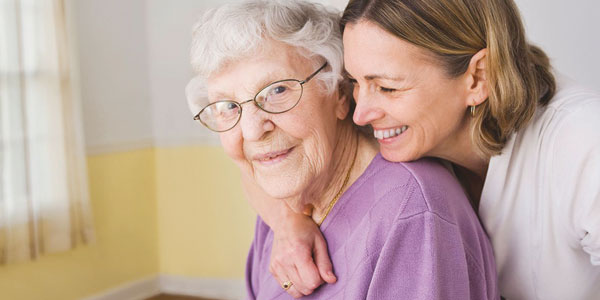
El cuidado de un padre es una montaña rusa. A pesar de que los hijos e hijas podrían tener las mejores intenciones, el intenso estrés de la situación puede tener efectos negativos en ambas partes. Si usted se encuentra en esta situación los siguientes consejos podrían ayudarle:
* Busque la manera de enfrentar el cambio de roles: Cuando nosotros, los hijos e hijas éramos jóvenes, nuestros padres se ocuparon de nosotros. Pero a medida que pasa el tiempo, los papeles se invierten. Este cambio puede causar una amplia gama de emociones, como miedo a tomar una decisión equivocada, el dolor y la negación. Asistir a un grupo de apoyo puede ayudar inmensamente con este cambio y los por venir.
* Saber cuándo hay que tomar decisiones: Hay una línea muy fina entre cúando se necesita intervenir para tomar decisiones, y cúando se debería permitir que su la persona sea independiente. Tenga en cuenta si las decisiones son racionales y segura. Sea proactivo y converse con sus padres cuando ellos todavía se encuentran mentalmente sano. Cuando llegue la hora de tomar decisiones, busque la ayuda de otros, como el de un asesor financiero u otro pariente. Recuerde que uno tan solo puede hacer lo mejor que puede de una situación difícil.
* Sé asertivo: Cuando un padre comienza en declive mental o físico, los hijos a menudo se encuentran en estado de negación. Como resultado, muchos se niegan a recibir la atención adecuada para su padre, como la colocación de los padres en un centro de enfermería especializada o encontrar otros tratamientos necesarios. En última instancia, esta negación puede llevar al descuido involuntario. Recuerde, la seguridad debe ser la máxima prioridad, especialmente cuando los padres tienen la enfermedad de Alzheimer. La falta de atención puede ser potencialmente mortal.
* Aprender a manejar sus emociones: Cuando uno se encuentra en un estado emocional muy grande uno puede elevar la voz y enojarse con facilidad. Por desgracia, el abuso de ancianos es común en las relaciones padre-hijo, por lo que controlar sus emociones y buscar ayuda es necesario.
El cuidado de un padre es noble, pero recuerde que debe buscar ayuda de profesionales, confíe en sus decisiones. Y lo más importante de todo, tener tiempo para disfrutar de los momentos que tenga con su padre. De esta manera, usted será capaz de gestionar la montaña rusa que viene experiencia.
__________________________________________________________________________________________________________________
How to cope with caring for a parent
Commentary by Carey Juez-Perez
Taking care of a parent is a roller coaster.
Although sons and daughters might have the best intentions when taking care of an elderly parent, the intense stress of the situation can have negative effects on both parties. So if you’re a son or daughter who’s new to this experience, try the following tips to help guide you through it:
*Find ways to cope with the role reversal: When we sons and daughters were young, our parents took care of us. But as time passes, the roles reverse. This reversal might cause an array of emotions, include fear of making a wrong decision, grief and loss over how the parent has changed, and denial. Attending a support group can greatly help with adjusting to the new position and the upcoming changes.
*Know when to make decisions for your parent: There’s a fine line between when you need to step in to make decisions and when you should allow your parent independence. Consider if the decisions are rational and safe. Be proactive and have conversations with your parent when the parent is mentally healthy. When you need to make decisions, seek help from others, such as from a financial advisor or another relative. Overall, remember, you’re doing your best in a difficult situation.
*Be assertive: When a parent begins declining mentally or physically, the children are often in denial. As a result, many refuse to get the proper care for their parent, such as placing the parent in a skilled nursing facility or finding other necessary treatments. Ultimately, this denial can lead to unintentional neglect. Remember, safety should be the top priority, especially when parents have Alzheimer’s disease, as the lack of care can be life-threatening.
*Learn to manage your emotions: When emotions are running high, we might raise our voice to our parents and become easily agitated. Sadly, elder abuse is common in elderly parent-child relationships, so monitor your emotions and seek help if needed. To help you do so, take time to destress and relax.
Caring for a parent is noble, but remember to seek help from professionals, trust your decisions, practice self-care. And most important of all, take time to enjoy the moments you have with your parent. That way, you’ll be able to manage the roller coaster ride that comes with the experience.









